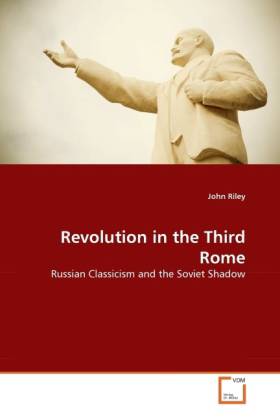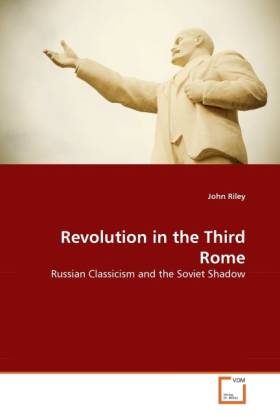
- Afhalen na 1 uur in een winkel met voorraad
- Gratis thuislevering in België vanaf € 30
- Ruim aanbod met 7 miljoen producten
- Afhalen na 1 uur in een winkel met voorraad
- Gratis thuislevering in België vanaf € 30
- Ruim aanbod met 7 miljoen producten
Zoeken
€ 58,45
+ 116 punten
Omschrijving
Revolution in the Third Rome is a story of conflict between the liberated mind and the oppressive state in one of the darkest times and places in modern history. It examines the experience of Russian intellectuals before and after the creation of the Soviet Union with a specific focus - their engagement with the classics. Delving into the work of the poet Osip Mandelstam and the historian Michael Ivanovitch Rostovtzeff among others, the book demonstrates how the history and literature of antiquity inspired Russian authors as they sought to challenge political tyranny in a nation gripped by revolution. With its study of the impact of the classics upon the political philosophies of the tsars as well as both Lenin and Stalin, the book demonstrates how the classics were a battleground between the state and intellectuals in the search for a Russian national identity. This book is one of the first to study the classics in the Russian context, offering a unique perspective on Russian political and intellectual history in a time of national transformation.
Specificaties
Betrokkenen
- Auteur(s):
- Uitgeverij:
Inhoud
- Aantal bladzijden:
- 156
- Taal:
- Engels
Eigenschappen
- Productcode (EAN):
- 9783639299908
- Verschijningsdatum:
- 3/11/2010
- Uitvoering:
- Paperback
- Formaat:
- Trade paperback (VS)
- Afmetingen:
- 152 mm x 229 mm
- Gewicht:
- 235 g

Alleen bij Standaard Boekhandel
+ 116 punten op je klantenkaart van Standaard Boekhandel
Beoordelingen
We publiceren alleen reviews die voldoen aan de voorwaarden voor reviews. Bekijk onze voorwaarden voor reviews.











